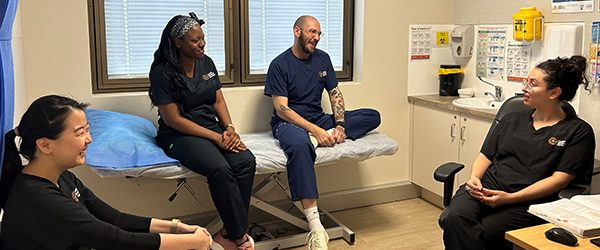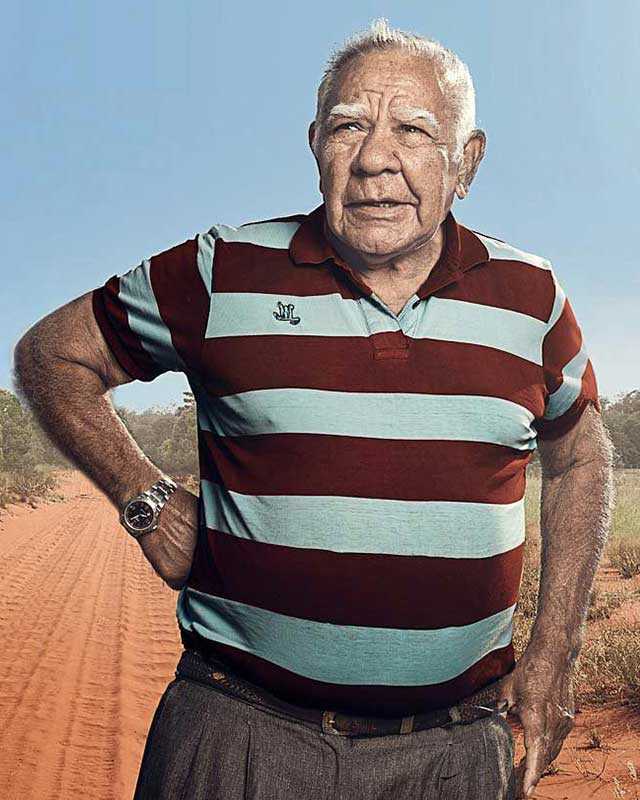Carbal Research

The Carbal Research Institute is an integral branch of Carbal dedicated to research and contributions in the field of healthcare.
Our mission revolves around the belief that research wields the power to drive meaningful change in health outcomes, health policy, and health economics. By reducing the burden on the healthcare system, we ultimately alleviate the associated costs, fostering positive health outcomes that, in turn, have a positive impact on the health budget.
Carbal provides a platform for our community to express and contribute their insights, fostering a deeper understanding of the profound impact research can have on healthcare.
Carbal’s Research Team
At Carbal, we boast a dedicated team committed to achieving project outcomes, reporting, and a strong emphasis on timely and transparent communication.
We take pride in our unwavering dedication to meeting objectives with utmost transparency.
Aboriginal & Torres Strait Islander Reach
Carbal serves and has extensive reach into two primary Aboriginal & Torres Strait Islander cohorts:
1. Carbal Medical Services Clinical and Community services:
-
- Our database comprises over 10,000 individuals who have directly engaged with our services in the Toowoomba & Southern Downs region.
2. Aboriginal and Torres Strait Islander Community
-
- Our online presence, powered by intelligent and targeted marketing campaigns, extends our reach and engagement to a broader community beyond our core audience.
According to the 2021 Australian Bureau of Statistics Census, approximately 8,000 Aboriginal and Torres Strait Islanders reside in Toowoomba, while approximately 2,000 live in Warwick.
Clinical or Community Data
At Carbal, our comprehensive healthcare ecosystem comprises ISO-accredited facilities:
-
2x General Practice clinics, RACGP-accredited
Learn More about Carbal’s Clinical Services
-
A state-of-the-art dental clinic
Learn More about Carbal Dental Services
-
NDIS
Learn More about Carbal’s NDIS Support Services
-
Online education courses for health professionals; nationally accredited
Learn More about Carbal’s Educational Training Programs & Courses
-
A diverse range of Outreach Health Support Services
Learn More about Carbal’s Outreach Health Support Services
Our information systems are equipped with extensive coding and analysis capabilities, enabling us to meticulously extract cohorts that align seamlessly with our research principles at any given juncture.
It’s through these multifaceted avenues that we are empowered to deliver a highly targeted approach, yielding quality research results that drive impactful change in healthcare.
Data Integrity & Quality
In our collaborative efforts with external research teams, we adhere to rigorous research processes, ensuring the highest standards of integrity and quality in all data provided.
Carbal diligently upholds and has firmly integrated systems to ensure compliance with various external accreditations, including RACGP, ISO, ACRRM, and GPMHSC.
Research Projects
Our ongoing participation in research projects underscores our
commitment to generating valuable insights and
facilitating policy improvements for
better outcomes for mob.
These endeavours are made possible through our
vital collaborations and partnerships
with universities.
Click the research project title to learn more:
Fetal Alcohol Spectrum Disorder (FASD)
University of Queensland
GenetiQs Project
QIMR Berghofer Medical Research Institute
Activating Primary Care for Medicine Safety (ACTMed)
University of Queensland / University of Melbourne
Maternal Service Integration Project
QAIHC / Darling Downs Health
Keep Sight
Diabetes Australia
Ricci Kids
University of Queensland / Queensland University of Technology
Queensland Pre-Exposure Prophylaxis Demonstration Project (QPrEPd)
University of Queensland
Sista Quit
University of Newcastle
Indigenous Health Priorities
Mater Research
B Stronger Hep B
Hepatitis Queensland
Aboriginal and Torres Strait Islander Partnerships to Prevent Permanent Lung Disease (APPLE)
University of Southern Queensland
Indigenous Model of Mental Health Care
University of Queensland
National Indigenous Bowel Screening Pilot
Menzies School of Health Research
Australian Lung Screen Trial
University of Queensland
Cervical Screening Self Collection
Queensland Health
Family & Community Safety for Aboriginal & Torres Strait Islander People (FaCTS)
Australian National University
Integrating Pharmacists within ACCHOs to improve Chronic Disease Management (IPAC)
James Cook University
Mum's & Bub's Deadly Diets
Mater Research
WOMB
James Cook University
Growing Deadly Families
Queensland Health
Dementia Study
University of Newcastle
Genomics Health Literacy Project (IG-HeLP)
QIMR Berghofer Medical Research Institute
Mobile Outreach Boomerange (MOB)
Carbal Medical Services
Pneumo Matters
Queensland University of Technology
Bridging Antenatal Care, Indigenous Babies & Smoking Cessation (BAIBS)
Queensland Health
Mayi Kuayu Project
Australian National University
Indigenous Genomic Project
Queensland University of Technology
Testimonials
"The Australian National University has partnered with Carbal Medical Services for several years. Carbal have maintained excellence in ethical guidelines, efficiency, and professionalism.
It's wonderful to work with a Service understanding the importance or data and the benefits this provides to communities."

Australian National University

Research With Heart
Carbal offers supplementary research resources that simplify complex papers, provide extra data, aid interpretation, foster collaboration, and promote accessibility, enhancing the overall impact and accessibility of research.

Partner With Us
TODAY
We’d love to hear from you!
Contact Carbal’s Research Team today and we will be in touch to discuss any enquiry further:
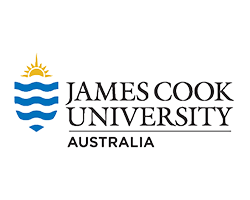
Womb Project
2018 – 2022
James Cook University
The womb project was supported through the Carbal’s Mothers group called Koala club in Warwick.
Aim: To build stronger community engagement with young mothers and their babies. The project has been running since 2018 and has made an impact on the group of young mothers in Warwick.

B Stronger Hep B
2021 – 2022
James Cook University
Aim: aims to raise awareness of hepatitis B in the Aboriginal and Torres Strait Islander community, focused on people living with or at risk of chronic hepatitis B.
The objectives of the project:
- Increase knowledge of hepatitis B prevention and encourage more testing in communities
- Increase knowledge and skills of healthcare providers to provide appropriate care and treatment for chronic hepatitis B
- Connect Aboriginal and Torres Strait Islander people living with hepatitis B to service providers.
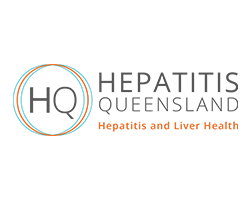
B Stronger Hep B
2021 – 2022
Hepatitis Queensland
Aim: aims to raise awareness of hepatitis B in the Aboriginal and Torres Strait Islander community, focused on people living with or at risk of chronic hepatitis B.
The objectives of the project:
- Increase knowledge of hepatitis B prevention and encourage more testing in communities
- Increase knowledge and skills of healthcare providers to provide appropriate care and treatment for chronic hepatitis B
- Connect Aboriginal and Torres Strait Islander people living with hepatitis B to service providers.
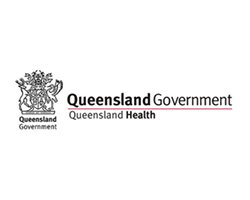
QIP Antenatal Project – BAIBS:
Bridging Antenatal Care, Indigenous Babies & Smoking Cessation
2018 – 2019
Queensland Health
The importance of early and regular antenatal care has been well established as having a positive effect on, and providing the foundation for, good health outcomes for mothers and babies. This project is targeted towards Aboriginal and Torres Strait Islander pregnant women, non-indigenous women pregnant with an indigenous baby.
Aim: to work with GPs, AMS and HHS facilities to improve Indigenous women accessing health care in their first trimester of pregnancy (earlier than 12 weeks) and accessing smoking cessation programs in their first trimester of pregnancy (preferable by 9 weeks but not limited to) through BAIBS-Smoking Cessation program.

Growing Deadly Families
2023 – 2024
Queensland Health
The vision of the Growing Deadly Families Strategy is that all Aboriginal and Torres Strait Islander babies in Queensland are born healthy, into strong resilient families.
Aim: The Growing Deadly Families strategy is that every woman in Queensland giving birth to Aboriginal and/or Torres Strait Islander babies has access to high quality, clinical and culturally capable maternity services.

Cervical Screening Self Collection
2023 – 2024
Queensland Health
Aim: to increase knowledge and awareness of health care providers (HCPs) working with Aboriginal and Torres Strait Islander peoples on cervical screening self-collection evidence and methods for reaching under or never screened populations.
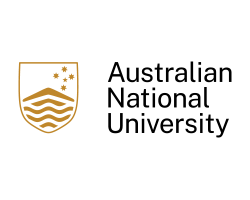
Family & Community Safety for
Aboriginal & Torres Strait Islander People (FaCTS)
2017 – 2018
Australian National University
Aim: To better understand family and community violence and what can be done to reduce it.
The objectives of the study:
- What services and supports are available to people and families affected by violence, and how these services and supports are experienced by people in the community.
- What communities think is needed to improve safety in Aboriginal and Torres Strait Islander communities.
- How violence affects relationships, health, wellbeing, education and employment.
- How much Aboriginal and Torres Strait Islander people and communities are affected by violence.

Mayi Kuayu Project
2019
Australian National University
Aim: to understand how Aboriginal and Torres Strait Islander culture links to health and wellbeing.
To provide information for community, services and policy makers about things that improve Aboriginal and Torres Strait Islander health and wellbeing.
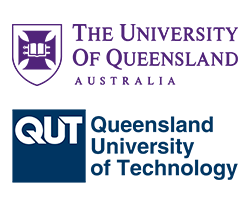
RICCI Kids
2015 – 2017
University of Queensland / Queensland University of Technology
A randomised controlled trial to evaluate early intervention in chronic chough in Indigenous children
Despite the importance of cough as a substantial cause of morbidity in Indigenous children, the are no data on the progression from acute to chronic cough following acute respiratory illness (ARI), and no data on the impact of active intervention at the transitional stage on clinical outcomes.
Aim: to conduct prospective studies of Indigenous children aged < 15 years presenting to an urban and a remote primary health care centre with ARI and follow them for 64 days post presentation. At day 29, children who have developed chronic cough will be randomised to active intervention (cough management algorithm) or standard care. In addition the study combines clinical, microbiological, socio-economic, cultural and risk factor data to comprehensively evaluate the natural history of chronic cough, the associated risks and health outcomes and, uniquely, evaluates the impact and cost-effectiveness of
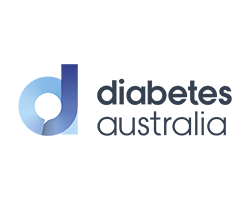
Keep Sight
2022
Diabetes Australia
KeepSight is a once-in-a-generation opportunity to end avoidable vision loss and blindness for Aboriginal and Torres Strait Islander people with diabetes.
Aim: A communications collaboration was proposed, that includes messages that are culturally safe and delivered in a way that resonates and respectfully encourages regular diabetes eye checks. We developed a marketing campaign and resources to encourage our patients to have an eye check.
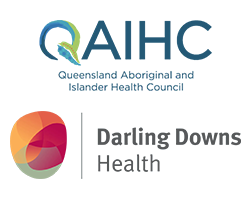
Maternal Service Integration Project
2020 – 2021
Queensland Aborignal and Islander Health Council (QAIHC) / Darling Downs Health
Aim: to enhance the ways Carbal Medical Services and the Darling Downs Hospital and Health Service (DDHHS) work together to deliver maternal health care in order to improve the health outcomes for Aboriginal and Torres Strait Islander mothers and babies.
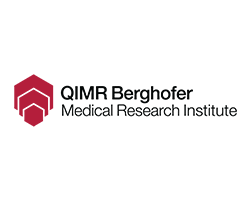
Genomics Health Literacy Project (IG-HeLP)
2019
QIMR Berghofer Medical Research Institute
Aim: to develop health literacy resources on genomics, genetic testing and precision medicine for Aboriginal and Torres Strait Islander consumers and health workers.
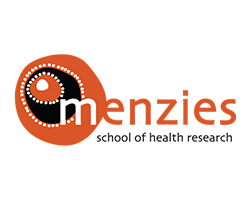
National Indigenous Bowel Screening Pilot
2018 – 2019
Menzies School of Health Research
Four out of 5 Indigenous Australians aged 50 to 74 are not accessing bowel screening.
Aim: to increase the participation rate of eligible Indigenous Australians in the National Bowel Cancer screening program.

GenetiQs Project
2019
QIMR Berghofer Medical Research Institute
Aim: To develop guidelines to assist researchers when undertaking genomic research in collaboration with Aboriginal and/or Torres Strait Islander Queenslanders.
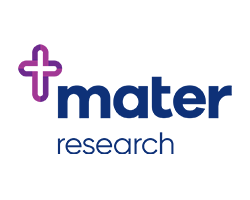
Mums & Bubs Deadly Diets
2022 – 2023
Mater Research
Carbal partnered with the University of QLD to develop an app for indigenous mothers.
Aim: To explore how mobile-health (m-health) can be incorporated to help support knowledge development of nutrition and engagement in dietary behaviours for Aboriginal and/or Torres Strait Islander women and their children. It is hoped it will address the gaps in knowledge and literature surrounding Aboriginal and/or Torres Strait Islander women and their children’s nutritional knowledge and dietary related behaviours.

Indigenous Health Priorities
2023
Mater Research
Aim: To understand the health concerns for Aboriginal and Torres Strait Islander families. The project’s primary focus lies within the pregnancy period and early childhood. This approach ensures that our research projects are carefully designed to align with the community’s needs and empower Aboriginal and Torres Strait Islanders to lead and shape research directions autonomously.
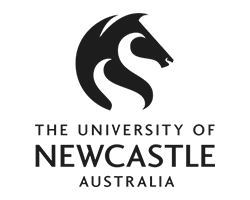
Sista Quit
2017 – 2018
University of Newcastle
Training health care providers to help pregnant Aboriginal and Torres Strait Islander women quit smoking. A cluster randomised controlled trial
Aim: To determine whether a health care worker training intervention increases smoking cessation rates among Indigenous pregnant smokers compared with usual care.

Indigenous Health Priorities
2019 – 2020
University of Newcastle
Aim: to work with health professionals to see how they currently accommodate the needs of clients and family impacted by dementia and what support/resources they need.
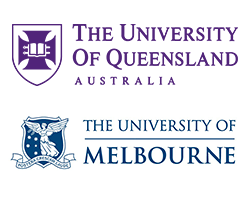
Activating Primary Care For Medicine Safety (ACTMed)
2023 – 2024
University of Queensland / University of Melbourne
Serious medication-related problems can lead to a range of life-threatening issues such as haemorrhage, exacerbation of heart failure, renal failure or acute asthma, causing unplanned hospitalisations, serious and costly health complications or death. In Australia, 250,000 hospital admissions and 400,000 emergency presentations were due to potentially preventable medication-related hospitalisations, at a cost of $1.4 billion per year.
Aim: a Queensland-wide stepped wedge trial which uses innovative technology, team-based care and an onsite pharmacist to improve medicine safety. ACTMed—activating primary care for medicine safety—provides an evidence-based solution.
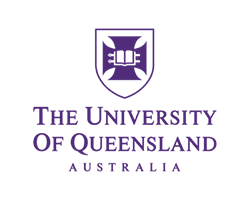
Indigenous Model of Mental Health Care
2017 – 2018
University of Queensland
Aim: to compares traditional Aboriginal healing methods to more common mainstream practice/ clinical treatments for patients with mental health issues.

Queensland Pre-Exposure Prophylaxis Demonstration Project (QPrEPd)
2018 – 2022
University of Queensland
Clinical trials have shown that taking Pre-Exposure Prophylaxis (PrEP) everyday along with using other HIV prevention measures like condoms and regular HIV and STI screening is the best way to reduce a person’s chance of acquiring HIV.
Aim: to examine the results of these PrEP clinical trials in the ‘real world’ setting to show that PrEP is a feasible, safe and effective method for reducing the risk of HIV acquisition in the Queensland community. The QPrEPd study aims to investigate how PrEP can be provided to HIV negative people through general practitioners and sexual health clinics in Queensland, whether HIV negative people will find PrEP and if it is delivered in an acceptable manner through the project.

Australian Lung Screen Trial
2023 – 2024
University of Queensland
Lung cancer is the leading cause of cancer death among Aboriginal and Torres Strait Islander peoples. Lung cancer incidence is likely to remain high in the coming decades. The Australian Government has approved a national lung cancer screening program.
Aim: to reduce the lung cancer disparities in Aboriginal and Torres Strait Islander people and ensure that screening is accessible by all at risk people no matter where they live. This project can inform the implementation of a national lung cancer screening program that has the potential to reduce the lung cancer inequities for the Aboriginal and Torres Strait Islander population.
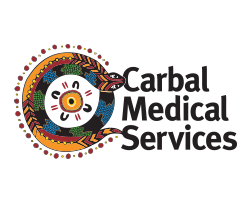
Mobile Outreach Boomerang (MOB) Van
Carbal Medical Services
Improving recognition and management of chronic wet cough in young First Nations children by caregivers and clinicians.
Aim: to address inequities, and discover the cultural benefits of Indigenous-specific mobile clinics to improve access to health care by delivering care to underserviced communities
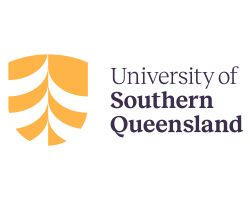
APPLE Study:
Aboriginal and Torres Strait Islander Partnerships
to Prevent Permanent Lung Disease
University of Southern Queensland
Improving recognition and management of chronic wet cough in young First Nations children by caregivers and clinicians.
Aim: To reduce the burden of bronchiectasis by preventing the progression of PBB to bronchiectasis in First Nations children.
The researchers work in partnership with First Nations health services, Government agencies and communities and develop and implement evidenced based strategies to improve the detection and management of chronic wet cough in First Nations children.
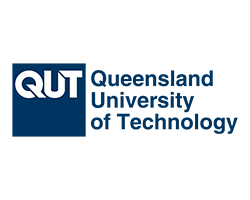
PneumoMatters Study
2018 – 2019
Queensland University of Technology
Aim: to active vaccination of pregnant mums for pneumococcal to reduce the rates of acute lower respiratory infection in children under 1 year of age.

Indigenous Genomic Project
2018 – 2019
Queensland University of Technology
Aim: to collect blood samples from consenting clinic clients that will be used for targeted DNA studies including organ transplant and blood products.

Fetal Alcohol Syndrome Disorder
2021-2024
University of Queensland
Carbal partnered with the University of QLD on a project funded under the Ideas grant funding on the prevention and coordination of support for Fetal Alcohol Spectrum Disorder for urban Aboriginal and Torres Strait Islander communities.
Aim: To co-create systematic, service-wide approaches to Fetal Alcohol Spectrum Disorder (FASD) prevention and coordination of support for those already affected in urban Aboriginal and Torres Strait Islander primary health care services.

